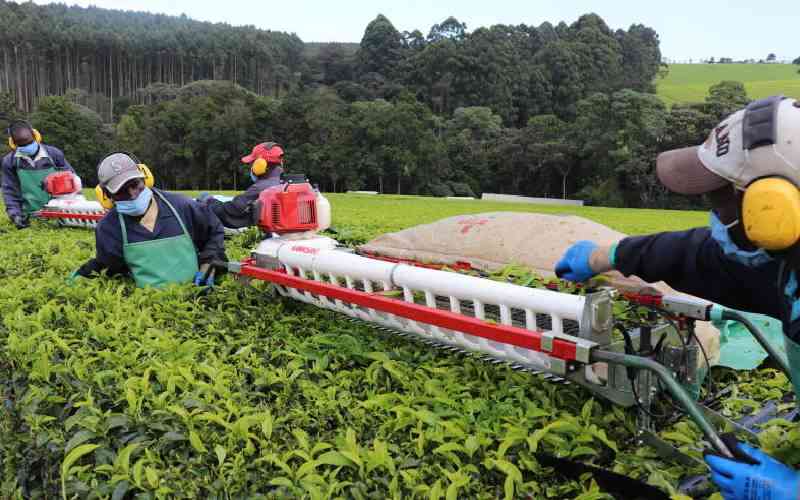×
The Standard e-Paper
Stay Informed, Even Offline

Large tea firms say they have refrained from laying off their staff in their quest to mechanise.
Instead, they are having the machines replace workers leaving employment through natural attrition.